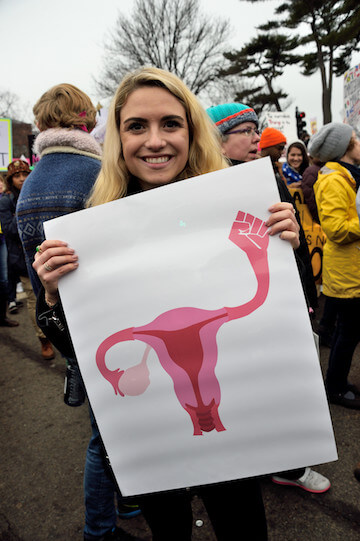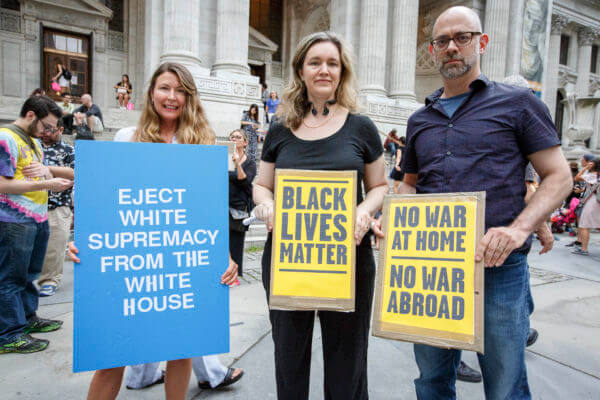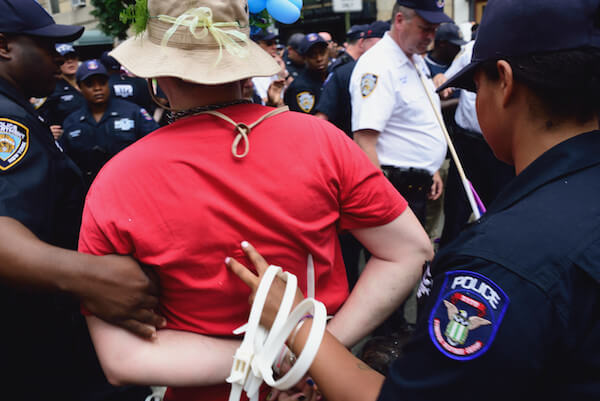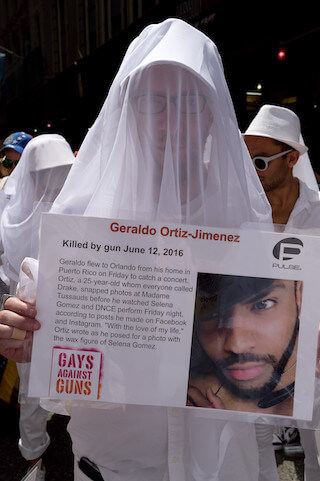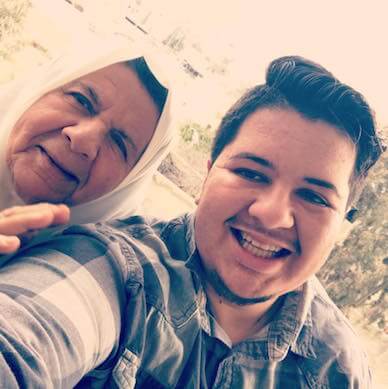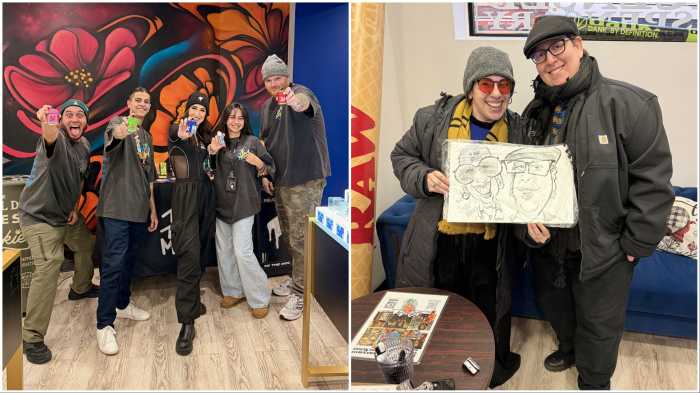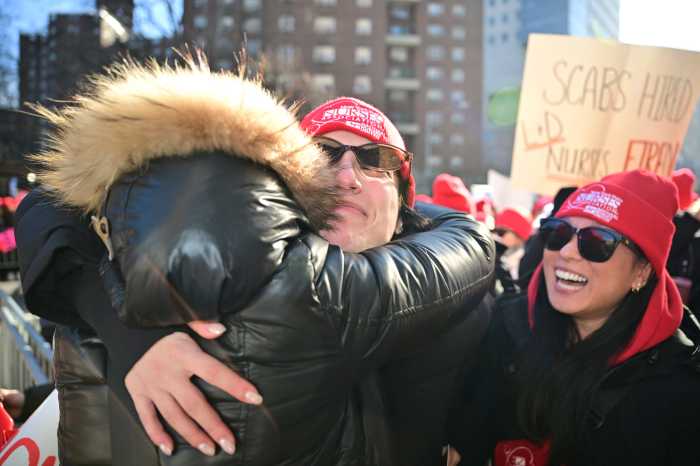The Women's March on Washington. | DONNA ACETO
I’m back in France, and about the time Donald Trump was taking the oath of office in the rain, I was trapped on a bus in the dark going around in circles. That’s what it felt like anyway, going round and round traffic roundabouts in the dark countryside after being bottlenecked for hours.
I was afraid it was a metaphor. I’ve been afraid for months. Of losing my insurance. Getting hassled, beaten, attacked by newly emboldened bigots. Targeted for being a dyke, or using the women’s bathroom while slightly butch, or maybe for speaking a foreign language out in public with my partner or friends. It’s happened before. I didn’t know a few syllables of Spanish could turn a white guy’s face so red.
But then Saturday, Saturday. I turned on the TV in the afternoon, and saw women, thousands of women. All those pink and red and magenta pussyhats. And signs, funny, furious, witty, obscene, and glorious messages of hope and resistance. I was taken aback, not just by the protesters, but the fact that the misogynist French mainstream media was actually covering the Paris Women’s March. They were even interviewing a range of women. An old white one. A young brown one. And that was just the beginning.
A DYKE ABROAD
All night long they followed marches in the US. The BBC, meanwhile, reported on the tens of thousands of protesters who filled Trafalgar Square. I couldn’t believe the images from the US, all those gazillions of people, mostly women, pouring into the streets in Chicago, and Detroit, and even mustering several thousand in Lexington, Kentucky.
I got kind of teary, but with joy for a change. At the marchers. But also at a new opening in the media that might just pay attention this time because democracy itself is in danger. And I tuned in occasionally to the Washington March, and listened to the speakers who were a righteously diverse bunch. Even the long-winded mansplainer Michael Moore offered Ashley Judd the opportunity to school other women in how to deal with that kind of masculine gasbaggery. You pull the plug, totally step on their ass. I was also impressed at how comfortable she was performing that poem that had her talking about racism, and queers, and trans people. That gave me hope, too.
I admit, I didn’t expect such a high turnout for the Women’s March, especially in the US, where most Americans have never been on the street. Even the black marchers of Black Lives Matter are only a small percentage of their communities. And seasoned activists are often snobs. Before we go to a march, we want to know who’s organizing the thing, what their pedigree is. Is it up to snuff? Are they? Who else is going? Are they radical enough? Inclusive enough?
There’s a reason for our skepticism. We often see LGBTQ describing an organization or event even though it’s dominated by gay white men. The women’s movement in the US, and many other places, has a history of indifference, if not outright hostility toward dykes, poor women, minorities, trans people.
On the other – left – hand, the last time I went to a march in Paris for International Women’s Day I thought I was in the wrong place. All the signs were about Palestine or the Iraq War or the environment, and didn’t even include the word “Femme.” The bodies in the crowd didn’t give a hint either. Most of the women were there with men so no one would think they were dykes. It seemed like women needed some kind of modifier to be valued, were expected to embody an inclusiveness that other groups, like #BLM, are entitled to push back from. Don’t come here with that #alllivesmatter nonsense that stinks of racism and privilege.
And yet, and yet. Women are half the population of the earth. Half of every racial and ethnic and religious group. All social and political issues everywhere affect the lives of women in some profound way. Don’t expect me to leave my dykeness at home. The place I came from. Our experience of race is entangled with everything. The challenge for the new women’s movement is to acknowledge these threads without erasing fundamental truths about the identity that arbitrarily unites us –– how our lives are marked by a toxic masculinity that systematically attacks and diminishes those of us with female bodies or touched by femininity in any way at all.
After a rocky start, the March organizers did a good job of pulling all the issues, all the people together. If Trump and his minions have performed one service, it is to make visible the deep connections between our country’s hardcore misogyny and anti-queer, white supremacist hate. All us social minorities are in the same boat. And if we don’t rise and resist together, we’re sunk.
Kelly Cogswell is the author of “Eating Fire: My Life as a Lesbian Avenger,” from the University of Minnesota Press.

